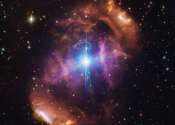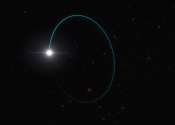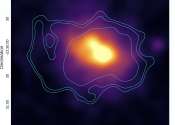Physicists solve puzzle about ancient galaxy found by Webb telescope
Last September, the James Webb Space Telescope, or JWST, discovered JWST-ER1g, a massive ancient galaxy that formed when the universe was just a quarter of its current age. Surprisingly, an Einstein ring is associated with ...







